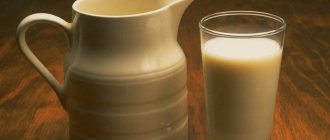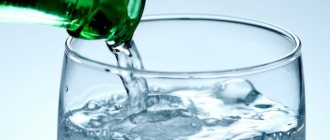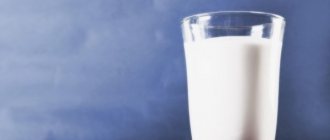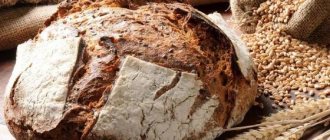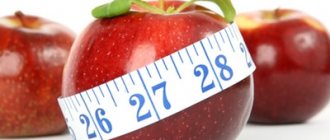One of the rules of weight loss diets is maintaining a drinking regime. The emphasis is on green tea, freshly squeezed juices, herbal infusions and still mineral water. Where is black tea on this list? What was wrong with the drink, which few people can live without in everyday life?
Benefits of tea for weight loss
It contains more than 300 components. Some of them help burn extra pounds. A large share falls on the following groups of substances:
- theine;
- vitamins - A, B, C, K, P;
- mineral;
- nitrogenous;
- essential oils;
- tanning;
- organic acids;
- pigments;
- enzymes.
What components help you lose weight:
- Theine is a type of caffeine, but it has a much gentler effect on the body. Drinking a cup of tea 30 minutes before meals helps improve digestion and avoid stomach stagnation. Theine has a stimulating effect, it invigorates and activates the brain. Therefore, you should not drink tea before bed if you do not want to count sheep half the night.
- Pectins - in high-quality tea are contained in a water-soluble form and are well absorbed. They cleanse the intestines of toxins and other harmful substances and have a beneficial effect on the functioning of the gastrointestinal tract. They bind simple carbohydrates and partially prevent their absorption.
- Polyphenols are a natural antioxidant that removes free radicals from the body, which provoke the development of cancer and cardiovascular diseases.
- Iodine is also present in water-soluble form, therefore it has an active property. It has a beneficial effect on endocrine function.
In addition, tea has a diuretic, and, therefore, removes excess water from the body, normalizes metabolism, and reduces appetite.
How much tea can you drink?
Every day you can drink from 1 to 3 cups of a properly brewed drink. This phrase refers to a brewing technology that brings out all the best properties of the drink. So:
- It is necessary to store tea leaves in containers that do not emit any odors. It is important that the material from which it is made cannot react with the chemicals contained in the tea.
- Use a kettle with a volume of about 1 liter.
- The kettle is rinsed 3-4 times with boiling water so that it warms up well.
- When brewing, add approximately 5 teaspoons of tea leaves (25 g) to 1 liter of white boiling water.
- First, put dry tea leaves into the kettle, then fill it with boiling water to half the volume. Then quickly close the lid and wrap all the openings of the kettle with a linen napkin to trap water vapor, with which the essential oils evaporate.
- The tea is infused for 3-15 minutes, depending on the hardness of the water and the type of tea brew. For premium tea, 3.5-4 minutes is enough.
- Then add boiling water to the kettle, leaving a distance of 0.5-1 cm from the drink to the lid. The foam formed on the surface indicates the correctness of the operation.
Is there any harm?
Black tea also has some disadvantages:
- A large amount of theine leads to overexcitation of the nervous system, sleep disturbance, and interferes with the absorption of iron. It can also provoke an exacerbation of gastritis or ulcers. Excess theine has an adverse effect on the mucous membranes.
- Fluoride contained in tea destroys calcium compounds. If consumed regularly, tea will have a negative effect on the condition of bones and teeth.
Drinking tea is contraindicated for some people - people with hypersensitivity to caffeine. Drinking a cup of tea at lunch causes them to have a rapid heartbeat, headaches, insomnia, and trembling in their legs and arms. Such intolerance is an extremely rare phenomenon, but it does occur.
It is also recommended to remove strongly brewed tea from the diet:
- with exacerbation of peptic ulcer, gastritis, kidney disease;
- glaucoma,
- pregnancy accompanied by toxicosis;
What to drink with tea when losing weight
For many, a piece of chocolate or candy with black tea is a real pleasure. However, when losing weight, you need to forget about high-calorie sweets. Best dessert options:
- homemade marshmallows on agar-agar;
- paste;
- real oriental sweets: halva, kozinaki, Turkish delight;
- marmalade;
- dried fruits;
- honey: buckwheat, acacia, chestnut, collected from various herbs;
- dark chocolate (at least 72% cocoa).
How to brew correctly?
Forget about bags. You need to brew high-quality large-leaf tea:
- Fresh water is poured into the kettle and boiled.
- Pour boiling water into the teapot and leave it for a few minutes. During this time the dishes will heat up.
- Then pour out the water, add tea and pour hot water over it - the optimal temperature is 95 °C.
- Leave to infuse for 5 minutes.
Properly brewed tea is very tasty and benefits the body.
To more effectively fight excess weight, black tea is combined with other ingredients - ginger, honey, milk, cinnamon and lemon.
It is prohibited to add sugar or sweeteners to tea.
Ginger tea
This tea is good for a fasting day. You can lose up to 1 kg per day.
Place 1 teaspoon of black tea, the same amount of chopped ginger root and 1/2 teaspoon of honey in a cup; if desired, you can add lemon juice (1/2 teaspoon). Pour boiling water over everything and leave to steep for 20 minutes.
Additionally, read the article about ginger and dietary ginger drinks.
Tea with lemon
This tandem cleanses the body of harmful substances, reduces appetite and puts metabolic processes in order.
Fresh tea is brewed. Let it cool slightly and add 1-2 slices of lemon to it. This helps retain more of the vitamins contained in the citrus. If you add crushed mint leaves here, the tea will have a calming effect on the nervous system.
Tea with milk
The drink “pacifies” hunger well. You can add various spices to it for taste - nutmeg, cinnamon, turmeric, cardamom or allspice. Bring 200 ml of milk with a fat content of no more than 2% to a boil, leave to cool for 1 minute and add 2 teaspoons of tea leaves. Add 1/2 teaspoon of tea to a glass of boiling milk and boil over low heat for another 3-4 minutes. Then leave to brew for 2 minutes under a closed lid.
Cinnamon tea
This drink speeds up metabolism, lowers blood sugar and improves immunity.
Dip a cinnamon stick into freshly brewed tea for 2-3 minutes or add 1/2 teaspoon of ground spice. It is still preferable to opt for a stick, since it contains more active substances.
Tea with honey, prunes and ginger
Prepare a mixture of 1 teaspoon of black tea, eight prunes and 10 g of grated ginger root. Pour 500 ml of boiling water. Leave for 30 minutes. The drink is filtered. Add 1 teaspoon of natural honey to 1 glass of warm tea. It is not recommended to add honey to a hot drink so as not to lose beneficial substances.
So, black tea is just as healthy as green tea. When consumed correctly, it benefits the body and helps you lose weight. There are enough recipes with black tea to please even the most demanding gourmet.
Contraindications
Uncontrolled consumption of teas for the purpose of losing weight is prohibited; too much fluid in the body can be harmful. Contraindications for use:
- Excessive amounts of caffeine overstimulate the nervous system and heart, contributing to insomnia, migraines, and hyperactivity. Caffeine interferes with the absorption of iron.
- The drink contains tannin; in large quantities it can irritate the mucous membranes.
- It is not recommended in large quantities for people suffering from peptic ulcers or gastritis.
- Frequent and excessive consumption negatively affects tooth enamel.
Losing weight with black tea is quite easy and does not require much effort. The main thing is not to overuse the drink and adhere to the recommended dosages. Then your health will be fine and your figure will be in excellent shape.
The article has been verified by the editors
Why is it harmful to drink a lot of tea?
For an adult, the daily intake of drinking water, including tea, is 1.5-2 liters (8-10 glasses). Excessive consumption puts stress on the kidneys and heart.
Tea should be limited to:
- for disorders of the gastrointestinal tract, especially of an inflammatory nature;
- with cholelithiasis;
- pregnant and breastfeeding women;
- with increased sensitivity to caffeine.
Polyphenols, aldehydes and alcohols contained in tea leaves do not have a negative effect on a healthy person. Negative side effects occur when the drink is consumed carelessly.
When tea can cause harm:
- If the dose of caffeine contained in tea leaves is exceeded.
- As a result of high concentrations of biologically active substances in the blood, when drinking strong tea on an empty stomach.
- If the tea is too hot or cold.
- If the brewing has stopped.
- When drinking tea along with medications.
Tea stimulates the central nervous system, increases mental and physical performance. But if you drink too much strong tea for a long time, especially on an empty stomach, the effect will be the opposite. At higher dosages, central nervous system depression occurs.
Bone destruction
If you drink a lot of strong tea, caffeine accumulates in the blood, which increases the acidity of gastric juice. To maintain acid-base balance. calcium secretion is activated. The mineral is washed out of bone tissue and excreted from the body. Bones become porous and brittle.
Yellowing of teeth
Tea polyphenols are not only antioxidants, but also colorants. Excessive consumption of tea contributes to the appearance of a specific yellow plaque on the teeth, which is difficult to remove.
Nose bleed
The habit of drinking scalding tea can negatively affect blood vessels. Under the influence of hot steam, the vessels located in the nasal cavity expand and are easily damaged, causing bleeding. The best temperature for tea is 50-60 °C.
Insomnia
A person who suffers from insomnia or experiences symptoms of deteriorating sleep quality should reduce their tea consumption. Especially if he drinks other drinks or takes dietary supplements that contain caffeine. A natural stimulant has an exciting effect on the central nervous system, increases the heart rate, slows down the production of the hormone melatonin - all this makes it difficult to fall asleep.
Drug Compatibility
Flavonoids contained in tea reduce enzymatic activity and suppress the enzymatic metabolism of drugs. Taking medications in combination with tea reduces the bioavailability of drugs. It is strictly forbidden to take medications to stimulate the central nervous system with tea or caffeine.
Iron deficiency
Tea tannins bind to iron supplied to the body through food. In iron deficiency anemia, drinking too much tea worsens the condition. To minimize the effect of iron absorption, it is recommended to drink tea between meals.
Nausea
Tea leaves contain organic compounds with an astringent taste. With constant excessive drinking of strong tea, catechins can cause nausea. Particularly sensitive people feel discomfort after one or two cups. But many people feel great drinking more than five cups daily.
Heartburn
Freshly brewed green tea drunk on an empty stomach can worsen acid reflux symptoms. Caffeine and biologically active substances that create the tart taste of the drink increase the production of acid by the stomach, which is thrown into the esophagus. Heartburn appears - burning, heaviness or pain behind the sternum.
Dizziness
Tea can cause discomfort due to the high dose of caffeine entering the bloodstream. Dizziness usually occurs after taking more than 400-500 mg, 6 to 12 cups. People who are especially sensitive to caffeine may experience discomfort with less consumption.
Caffeine addiction
Caffeine is the world's most popular stimulant and plant alkaloid. Green tea leaves contain more of it than coffee beans. A person who is used to drinking a lot of strong tea may develop a caffeine addiction.
With a sharp decrease in the level of caffeine in the blood, withdrawal symptoms appear: headache, severe fatigue, depressed mood, anxiety, difficulty concentrating, sleep disturbance, tachycardia, hand tremors.
The half-life of caffeine is 4 to 6 hours. Symptoms of addiction persist for 2-7 days.
